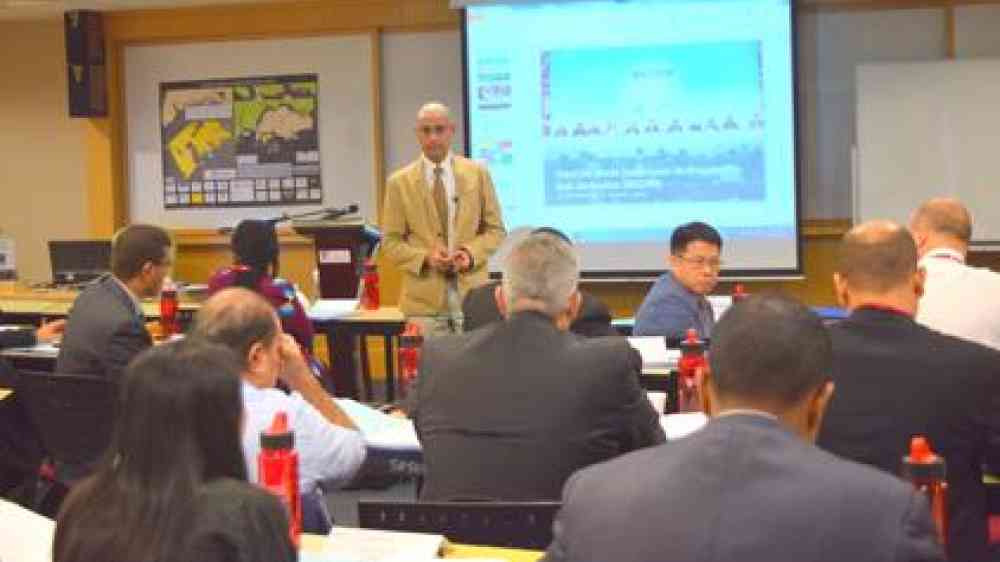Singapore and UNISDR launch Sendai partnership

GENEVA, 4 November 2015 - Singapore and the United Nations Office for Disaster Risk Reduction (UNISDR) have teamed up to strengthen the disaster risk management capacity of Small Island Developing States (SIDS) and other countries that are on the front line of climate change.
A first joint specialised training course in Singapore provided practical support for the implementation of the Sendai Framework for Disaster Risk Reduction in several countries and territories, including Fiji, Mauritius, China, Panama, Pakistan, Seychelles, Solomon Islands, Trinidad and Tobago, India, Sudan, Zimbabwe, and Palestine.
Representatives from Singapore and UNISDR shared their expertise on early warning systems, hazard and vulnerability assessment, emergency preparedness plans, resilient public health systems, climate change adaptation and mitigation measures, and sustainable urban planning.
The course focused on mainstreaming disaster risk reduction and climate change adaptation and mitigation into national sectoral strategies and programmes as well as the development of actions plans to support this.
Mr Rajarm Luximon, Environment Officer from the Mauritius Ministry of Environment, Sustainable Development, Disaster and Beach Management, said the training would strengthen their implementation of the Sendai Framework.
“We’ve read about the Sendai Framework and the four priorities. But after reading, we were not sure what to do. This course showed how the (Sendai Framework’s) priorities should link up, and how we need to identify and understand the gaps, then go into specific action plans and objectives,” he said.
Ms Arlini Timal, Training and Education Specialist from the Trinidad and Tobago Office of Disaster Preparedness and Management, agreed: “The course was very insightful. We are trying to upgrade our disaster risk reduction policy, and it was useful to find out about the many tools that we can use.”
The Head of UNISDR’s Office for Northeast Asia and Global Education and Training Institute (GETI) Mr Sanjaya Bhatia, said the objective was to provide practical guidance and share actual experience. “The 28 participants from the various countries are now in a position to implement and integrate disaster risk reduction and climate change actions into their development policies,” he said.
The initiative was first announced by Singapore’s then Minister for Foreign Affairs and Minister for Law Mr. K. Shanmugam and the head of UNISDR Ms Margareta Wahlström during the Third UN World Conference for Disaster Risk Reduction in March 2015. It is set to continue in line with the 2030 Agenda for Sustainable Development.
The course was conducted under the Singapore Cooperation Programme (SCP), which is the primary platform through which Singapore extends technical assistance to over 170 countries.
The initiative is in addition to the dedicated technical assistance for SIDS that Singapore announced at the Third International Conference on SIDS held in Samoa from 1-4 September 2014. This package provides customised training in disaster management, sustainable development and non-traditional security.